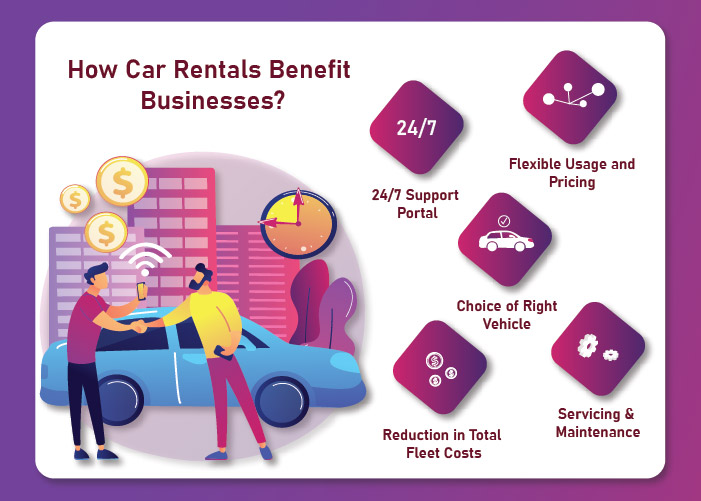Free Advice To Selecting A Car Rental Website
Wiki Article
How Do You Select The Right Size And Type Car When Renting One?
The type and size of vehicle you select to rent must be determined by factors like the number of people travelling with you, the size and weight of luggage as well as the destination. That's how you choose the best vehicle for you. If you're traveling on your own or with just one person, a small car could be adequate. It is important to choose a car with enough room for everyone for those traveling in a large number. You may need to provide more space for your passengers on long journeys.
Calculate the amount you'll carry in luggage. Include bags and suitcases and other things. If you're traveling with a limited amount of luggage then a small or mid-sized car with a trunk is enough. If you're planning to travel with big suitcases, sports equipment, or bulky objects, you'll require a vehicle with ample cargo space, such as an SUV, minivan, or station wagon.
Destination: Think about your destination as well as the kind of terrain you'll encounter during your trip. Smaller vehicles are more convenient and easier to maneuver in urban zones, where there might be tight streets or parking restrictions. A 4WD or SUV with a high ground clearance is recommended for off-road adventures and trips to remote areas with rough terrain.
You should also be aware of any specific requirements you may have. For example the need for wheelchairs or child seats. Some rental companies provide specialty vehicles that are specifically designed for specific needs. They could include luxury convertibles or cars and electric or hybrid vehicles.
You can choose the right size and type of vehicle for your requirements by taking into consideration factors like the number of people, luggage, location and any special needs. You should communicate your needs and preferences at the time you make your reservation. See the top next page on car rentals for more tips including day by day car rental, car rental car, car rental near me now, cheapest place to rent a car, best car rentals near me, fancy cars for rent, rental cars in my area, rent your car out, place to rent a car near me, hire cars under 25 and more.

How Do I Inspect My Vehicle To Check For Wear Or Damage?
The inspection of the rental vehicle for any damage or indications of wear and tear prior accepting it is essential to avoid being held responsible for issues pre-existing prior to returning. Here are some steps you can follow to ensure that the car is thoroughly inspection:
It is important to carefully examine the car's exterior for dents, scratches, and other marks.
Be aware of bumpers, doors, and fenders. Also, pay special focus on mirrors.
Check for chips or cracks on the windshield.
Examine the underside of the vehicle to look for evidence of leaks or damage to the undercarriage.
Interior Inspection
Open the doors to the car including the trunk.
Check the upholstery, seats and carpets to look for stains.
Verify that the adjustment for all seats, not just the one for the driver, are functioning properly.
If you find any damages, you should check the steering wheel and dashboard.
Verify the health of your air conditioning, ventilation and heating systems.
Check your audio system and turn signals, lighting, and other electronic parts.
Functional Inspection
Get the car started and check the dashboard for any warnings or errors.
Check your brakes, the accelerator, and the clutch (if necessary), to make sure they're all working in a smooth manner.
Verify that the brake lights turning signals, high beams, and headlights are working correctly by turning them off.
Test the washer fluid, emergency brake as well as the windshield wipers, and horn washer fluid.
Note any damages.
You can utilize the form of a rental contract or an application for your smartphone to document any damages or issues.
Make videos or photos of the car from multiple angles, and focus on areas with signs of wear and wear and tear.
Please note the exact location and the severity of all scratching, dents, and other damages on the rental contract form.
You must inform the representative from the rental company about any damages before taking the car.
Report Damage
Inform the representative at the rental agency of any damages you may have discovered during the inspection.
They must document the damage and send you a report of their inspection.
You and the representative of the rental company must sign the rental agreement or inspection report in order to acknowledge any damages.
These steps can help you avoid any legal problems and ensure your rental experience goes smoothly.

What Do You Need To Know About The Policy On Fuel For A Rental Firm?
Understanding the company's policy on fuel is vital to avoid extra charges. Here's how to learn about the policy on fuel. Read the rental contract Be sure to read the rental contracts provided by rental companies. The fuel policy typically appears in the document, in a section titled "Fuel Policy", or "Refueling."
Read the Terms and Conditions: Pay attention to the particulars of the fuel policy. For example there may be a requirement to return your car with a fully-filled tank and buy a fuel tank for a fixed price or pay a refueling cost.
Ask Rental Company Reps: If there isn't a clear definition of the fuel policy in the rental agreement or if you have any other concerns, contact the representative from the rental company to clarify. You can contact their customer service department via phone, email or via live chat if have any questions about the fuel policy.
Some rental companies will ask you to return your vehicle with a full tank of fuel in order to avoid additional charges. You will then need to fill the tank in an area petrol station prior to returning the rental car. You should keep the receipt of fuel to prove.
Certain companies permit you to purchase a fuel tank at a fixed price before taking possession of your vehicle. If you choose this option, you can return the vehicle at any point in the fuel range without having to pay to refill. The fuel you don't use may not be refunded.
Rental companies can charge to refuel if you don't have a pre-purchased fuel and return the vehicle with a full tank. This charge is typically comprised of the cost of fuel, plus an additional service charge. Local gas prices can be significantly higher.
Learn about penalties: Be aware of any penalties or fees associated with the policy on fuel, such as administrative charges for failing to meet the refueling requirements. Knowing the fees ahead of time can help you avoid being surprise by unexpected charges upon return.
Make a Plan. It is important to consider the fuel policy of your rental car provider and also your travel itinerary when planning your refueling. To avoid paying refueling costs, allow enough time to locate a gas station close by and then fill up the tank.
Knowing the policy on fuel of your rental company and adhering to its guidelines will help you avoid any unnecessary costs.
